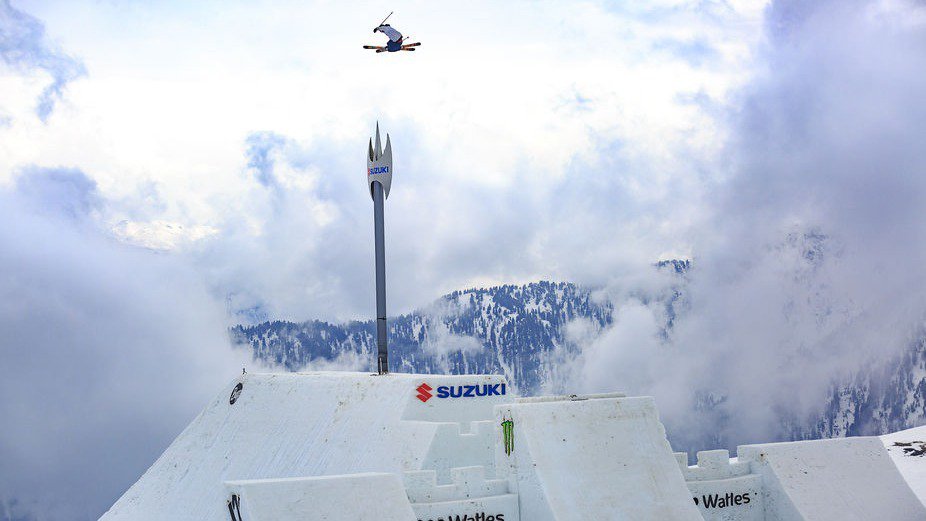A couple weeks ago, Elias Ambuhl skied switch at 130 kph (80mph) switch. This latest skiing record got the Newschoolers editorial team and I thinking about other skiing world records, from Simon Dumont’s quarterpipe hit, to Wallisch’s long rail. Cover photo by Emily Tidwell
The tricks, airs, and other feats that have put skiing in the book of world records are absolutely nuts in their own right. David Wise’s hip air at 9 Knights was ludicrous for example. When put into a larger context, however, these feats of unthinkable possibility are just blips on the radar, without a profound impact on the sport of skiing.
There are 1,413 matching entries for “ski” in the Guinness database of world records. These record are for everything from the fastest 100 meters run in ski boots to Elias’ switch skiing last week. Looking at the sheer number of records begs the question - what can’t you get a world record for? My search into the obscure stopped at the largest swimwear parade on skis, 1,008 people in case you’re curious. This just goes to show how, in general, the power of a world record lies in the simplicity of the feat, the fastest person in the world is a more respected title than the Russian bikini skiing parade for example.
By this logic, skiing feats have the potential to hold high esteem, things like the fastest switch skier, or highest air. However, these freeskiing records don’t mean much other than a nice payday from your energy drink sponsor trying to push their “extreme” image (which may be a good enough reason to go for it, we’ve all got to pay the bills). Looking back, it’s hard to see that any freeskiing world record really helped to push progression. For example, Simon Dumont’s 35’ quarter pipe big air didn’t change the way people ski quarterpipe (they still don’t), and Wallisch sliding a giant rail didn’t change rail skiing, he’s done that in far more convincing ways through other avenues.
Some people may almost equate the importance, or lack thereof, of world records to a competition versus film skier debate, however, it is pretty clear than these records don’t have an effect on progressing the competition scene either. Perhaps the one example to the contrary is the highest halfpipe air, although the most recent record held by Joffrey Pollet-Villard wasn’t in a contest.
While these records are certainly impressive, I think their fleeting impact on the sport is really a testament to the values of freeskiing, whether in competition or not. Records like the highest air and fastest switch speed may seem to be relevant and worth chasing when compared to ridiculous records like the largest swimwear parade, but these insane feats seem to fade from the collective memory because they are so out of context. Contest runs, tricks, airs, and video parts are often remembered not for their speed and magnitude, but for the way they change or progress the sport. Freeskiing exists because of this desire to break from the simple descriptors of speed and distance, and that is why I think that no matter the insanity of the feats themselves, that freeskiing world records do not matter.
Am I completely off base? Do you agree? Share your own opinion.
https://www.newschoolers.com/videos/watch/825583/Tom-Wallisch-World-Record-Rail-Slide-


Comments